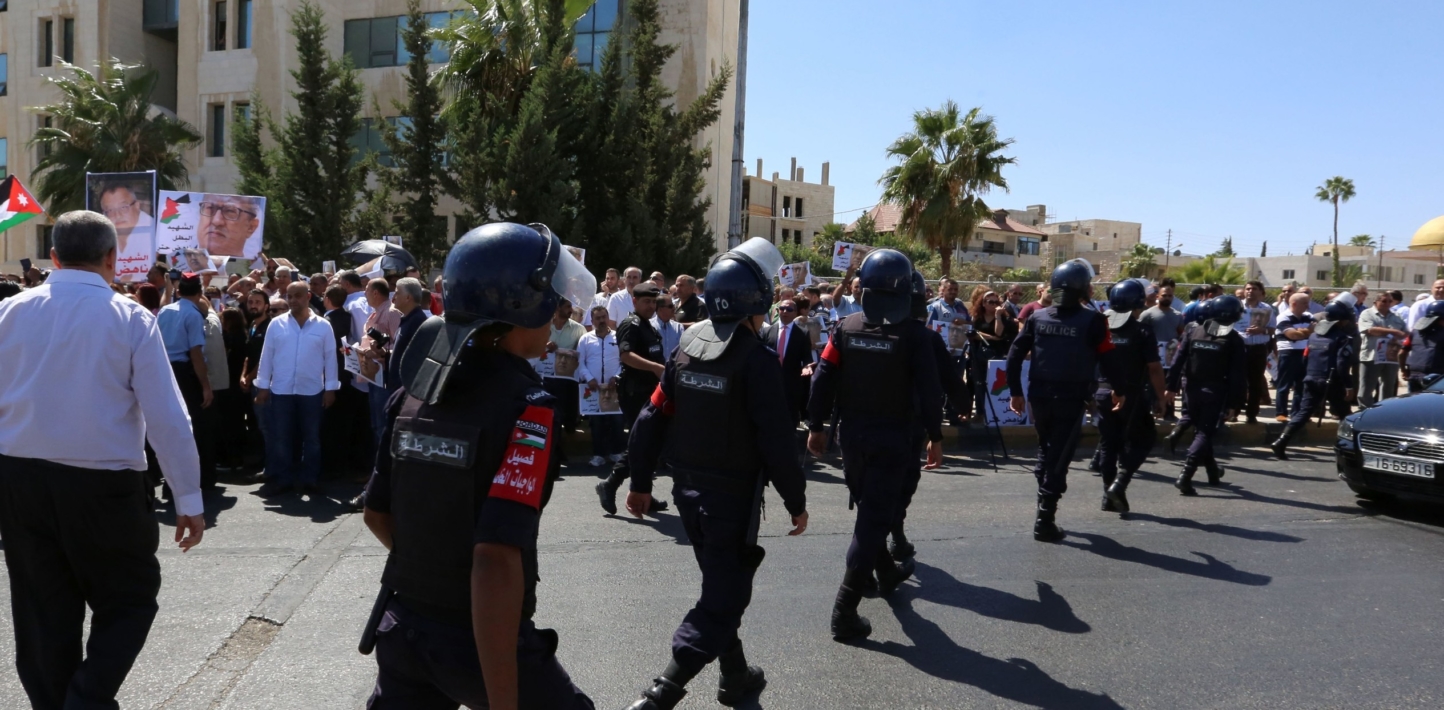The shooting to death of a prominent journalist outside a court in Amman yesterday is an alarming attack on freedom of expression, said Amnesty International.
Nahed Hattar was in court to face charges of “offending religion” and “inflaming religious feelings” under the country’s strict blasphemy laws, after he shared a satirical cartoon deemed to be offensive to Islam. His family warned he had received a number of death threats since his arrest in August.
“This deplorable murder of a journalist in broad daylight sends an alarming message about the state of freedom of expression in Jordan today. By using strict blasphemy laws to prosecute a person for peacefully exercising their right to freedom of expression the Jordanian authorities are fuelling a climate in which violent threats against people whose views are deemed offensive by others are allowed to flourish,” said Philip Luther, Research and Advocacy Director for the Middle East and North Africa at Amnesty International.
This deplorable murder of a journalist in broad daylight sends an alarming message about the state of freedom of expression in Jordan today
Philip Luther, Research and Advocacy Director for the Middle East and North Africa
“The Jordanian authorities must make it clear that attacks against people who peacefully express their views, however unpopular, will not be tolerated.
They must commit to protecting those who express unpopular views and to repealing restrictive blasphemy laws in Jordan’s Penal Code which violate freedom of expression and could contribute to fuelling similar violent attacks. They must also investigate this murder and bring those responsible to justice in a fair trial which excludes the death penalty.
“The fact that Nahed Hattar was facing prosecution and a possible prison sentence for sharing a controversial cartoon is itself a blatant assault on freedom of expression. No one should be imprisoned for sharing a cartoon that does not incite violence, even if some view its content as offensive.”
Nahed Hattar’s lawyer had also raised fears of possible demonstrations and riots outside the courthouse on the day of the trial. Nahed Hattar’s family had requested protection for his day in court, but it appears none was provided. After his killing a number of critics took to social media calling him an “infidel” and “justifying” his killing.
Jordan’s government routinely restricts the rights to freedom of expression, association and assembly under laws that criminalize peaceful expression.
Since 2015 dozens of journalists and activists have been arrested and detained under Penal Code provisions which criminalize defamation of religion, the monarchy and other institutions. Some critics – including journalists, pro-reformists and members of the Muslim Brotherhood – have been arrested and tried under the anti-terrorism law as amended in 2014, which allows for prosecution for harming Jordan’s relations with “friendly” states.
In just one example, Professor Eyad Qunaibi served a one year prison sentence, handed to him by Jordan’s State Security Court (SSC) last year, for an apparently peaceful Facebook post in which he criticized the Jordanian government’s relations with Israel, and its treatment of religious Jordanians. He was convicted under charges of “undermining the political regime … or inciting opposition to it”.
Background
Nahed Hattar was arrested on 13 August two days after he posted the satirical cartoon portraying a decadent scene in the afterlife purportedly featuring a member of the armed group which calls itself Islamic State (IS). He deleted the post a day after it was shared, saying he did not wish to offend Muslims but was still arrested the following day. He was held at Marka detention centre in Amman, denied bail three times until he was finally released on bail on 8 September.
The Attorney General had also issued a media ban against reporting on the case.


